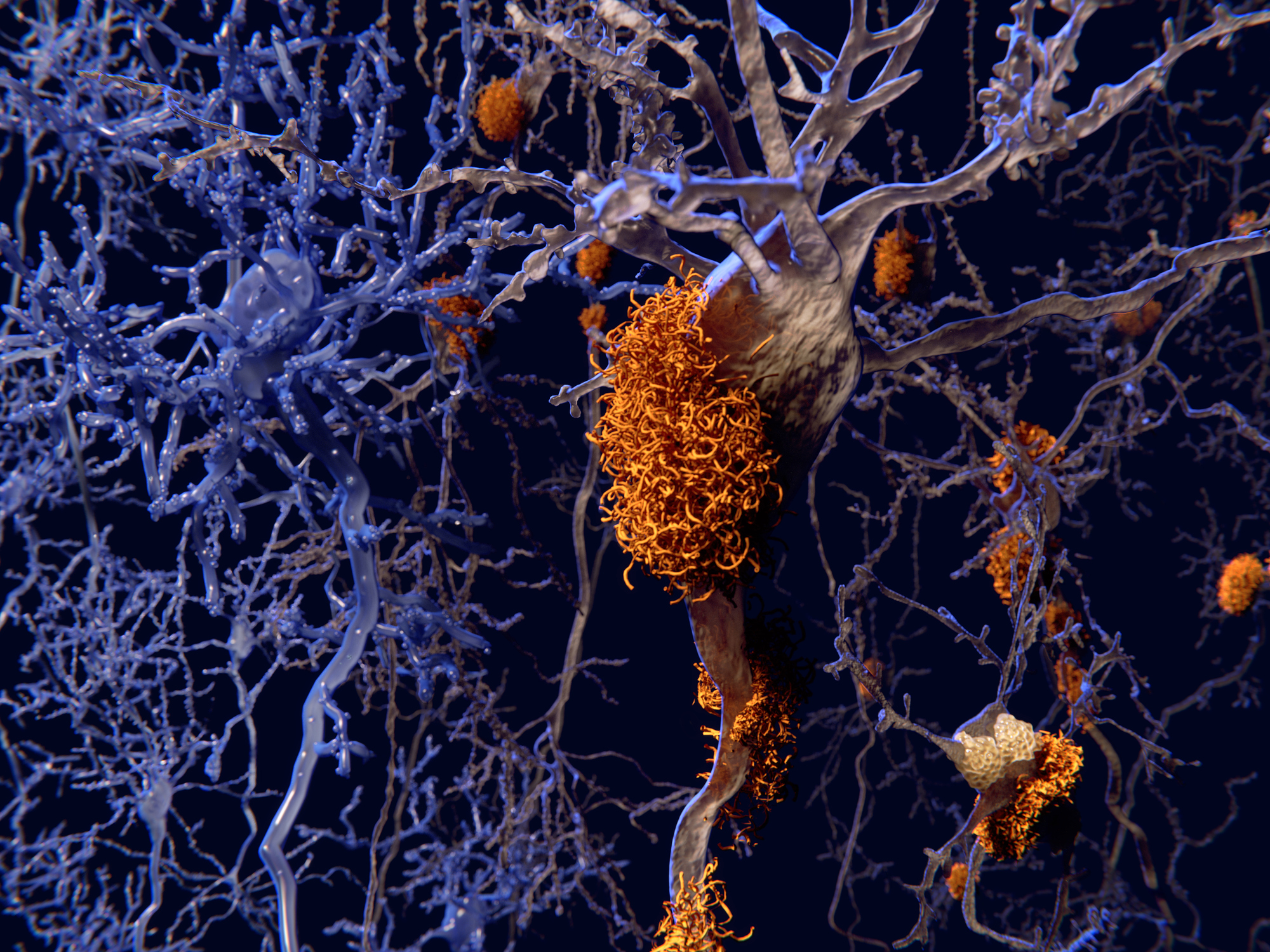
ALZHEIMER'S BREAKTHROUGH AS NEW BRAIN CELL TARGET IDENTIFIED
Neuroscientists have made an exciting breakthrough in our understanding of Alzheimer's disease, which challenges what we thought we knew about neurodegeneration. The discovery offers new, promising targets for Alzheimer's therapies to more effectively slow disease progression.
Alzheimer's affects roughly 5.8 million Americans, according to the U.S. Centers for Disease Control and Prevention. The progressive disease is the most common form of dementia and is associated with memory loss and cognitive decline in regions of the brain involved in thought, memory and language.
Today, there is no known cure for Alzheimer's, although scientists believe it is caused by the abnormal buildup of proteins in and around brain cells. One of the major components of these abnormal aggregates is a protein called amyloid beta.
More From Newsweek Vault: What Is a Health Savings Account?
Amyloid beta is produced when proteins in the brain misfold and clump together. These clumps initiate a variety of damaging chemical reactions around our brain cells that damage and eventually destroy them.
"Previously, it was assumed that nerve cells were the main producers of amyloid beta in the brain, leading research to focus predominantly on neurons as the primary contributors to Aβ accumulation in Alzheimer's disease," Marc Aurel Busche, who led the study, told Newsweek.
More From Newsweek Vault: Compare the Top Health Savings Account (HSA) Providers
"Our findings challenge this long-standing belief," said Busche, a fellow in dementia and neurodegeneration at the U.K. Dementia Research Institute at University College London.
Specifically, Busche, Rikesh Rajani and their colleagues at the UK Dementia Research Institute found that these amyloid beta peptides are also produced by other types of brain cells. Specifically, these are specialized fatty cells that wrap themselves around our neurons and insulate them like the plastic coating around a wire.
These cells, known as oligodendrocytes, play an important role in enabling rapid information processing in the brain. But, according to these findings, they may also contribute to the development of Alzheimer's.
"Our findings suggest that perhaps by targeting oligodendrocytes, we could more effectively stop amyloid beta production without causing other issues and thereby more effectively and safely slow the progression of the disease," Busche said.
The findings add to previous research, indicating that oligodendrocytes are among the first cell types to react to the accumulation of these abnormal proteins in Alzheimer's disease.
"These cells not only produce Aβ but also alter their function and molecular state in response to it," Busche said. "It will be essential to further investigate the behavior and function of oligodendrocytes in the early stages of Alzheimer's, as this could uncover new therapeutic targets and strategies to intervene at the onset of the disease, hopefully improving outcomes for patients."
Is there a health problem that's worrying you? Do you have a question about Alzheimer's disease? Let us know via [email protected]. We can ask experts for advice, and your story could be featured in Newsweek.
2024-07-23T19:09:00Z dg43tfdfdgfd